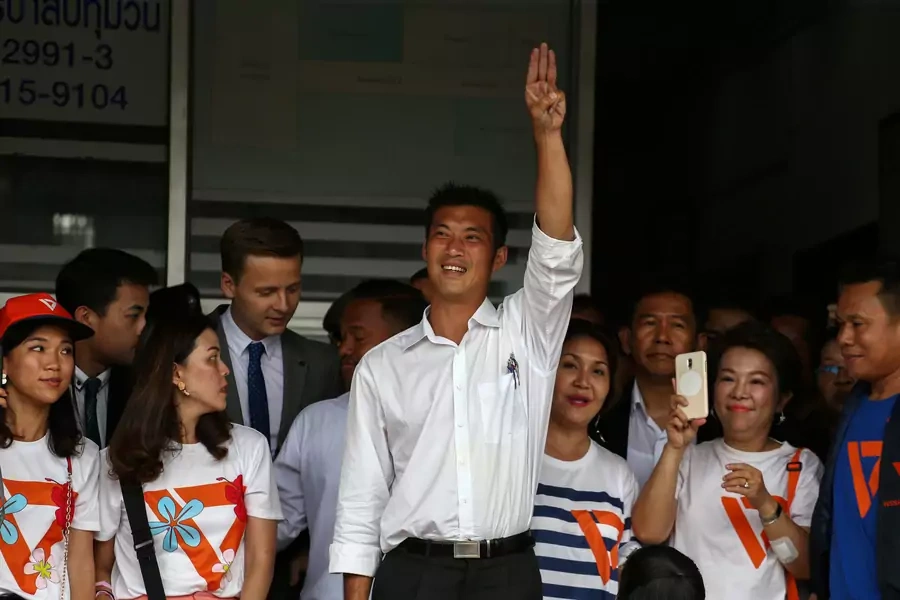Thailand’s Anti-junta Coalition Has a Weak Hand—and It’s Going to Get Weaker

More on:
Although it has been more than a month since Thailand’s elections, the actual outcome remains uncertain. The final count of seats in the lower house of parliament is still unclear, since the election commission has not decided how to allocate party list seats, and since some of the winning candidates, particularly in the group of anti-junta parties, could be disqualified. Of course, the upper house was not elected, and is essentially packed with supporters of the military and probable prime minister Prayuth Chan-ocha.
The group of anti-junta parties, which joined in a coalition after the election, still claim to have more than half of the seats in the lower house of parliament. Although half the lower house would not be a big enough haul to stop Prayuth from becoming prime minister, since he could draw on total support in the senate and enough support in the lower house to be named prime minister, holding more than half the seats in the lower house would in theory allow the anti-junta coalition to block legislation proposed by Prayuth and his allies. This showing by the anti-junta parties also, in theory, reflects the public will—and a desire by many Thais to embrace new, reformist parties.
But the anti-junta coalition’s position remains perilously weak; in reality, they have few cards to play. Some articles, like a recent piece in the Nikkei Asian Review, suggest that the anti-junta coalition is in a modestly strong position to challenge the military, and eventually pave the way toward real liberal democracy in Thailand. And indeed, it is true that in the elections, Future Forward, the biggest new party in the anti-junta coalition, won a strikingly large share of seats for a party that had not existed before the 2019 vote, and one that was not linked to the red-yellow splits of the past. It also demonstrated a popular appetite for a party that eschewed traditional political machinery and Thai money politics, called for cuts to the bloated military budget, brought many new faces into politics, and relied on social media to get out its talking points.
But a future where Future Forward, or another reformist party, has real power, is far off. The junta has shown, in the weeks since the election, that they intend to crush Future Forward, and that a political compromise, one that might end post-election squabbling over the lower house and pave the way for real reform far down the road, is almost surely not going to happen. This time around, unlike, say, in the mid-2000s, the armed forces appear determined not to allow a situation in which their power could be undercut.
The leader of Future Forward, Thanathorn Juangroongruamgkit, and other top members of Future Forward, face a wide range of charges, including some related to election law, some related to sedition, and some related to share sales. Most likely, Thanathorn will be disqualified from politics, and some of his allies in the party will be coerced or co-opted to join the pro-military coalition in the lower house. Meanwhile, other members of the anti-junta coalition will be arm-twisted to join the pro-military coalition in the lower house, defanging the anti-junta group’s power.
The anti-junta coalition will have little recourse. Indeed, the military, which already oversaw the harshest coup era in Thailand in decade, has little interest in compromise. They also face little external pressure; foreign diplomats may pay visits to Thanathorn, but foreign governments are not going to turn the screws on Thailand. Major powers are eager to fully restore all relations with Bangkok, no matter how the election results ultimately wind up.
The tactics being utilized against Thanathorn are tried and true measures in Thai politics. Will they provoke an angry, violent response, as has occurred at times in Thailand when the military, and its proxies attempted to subvert the results of an election? Probably not now—there is unlikely to be massive unrest, of the kind that paralyzed Bangkok in 1992 or 2010. The junta took tough measures, in the past five years, to minimize the possibility of a popular uprising; the groups with the greatest recent abilities to turn out large numbers of protestors, those linked to Puea Thai party, have mostly been shattered in recent years.
More on:
 Online Store
Online Store